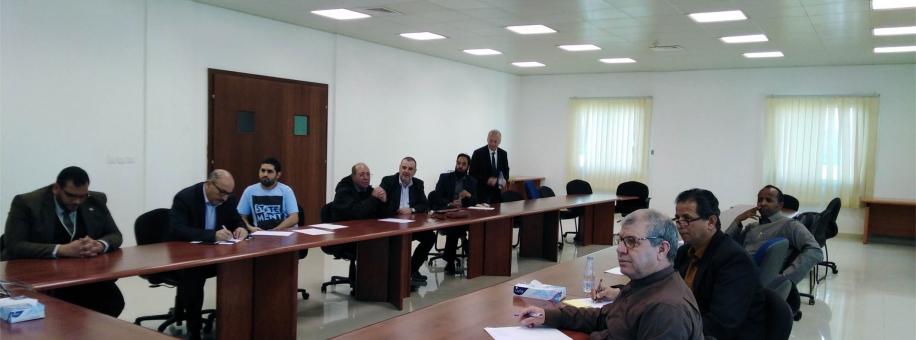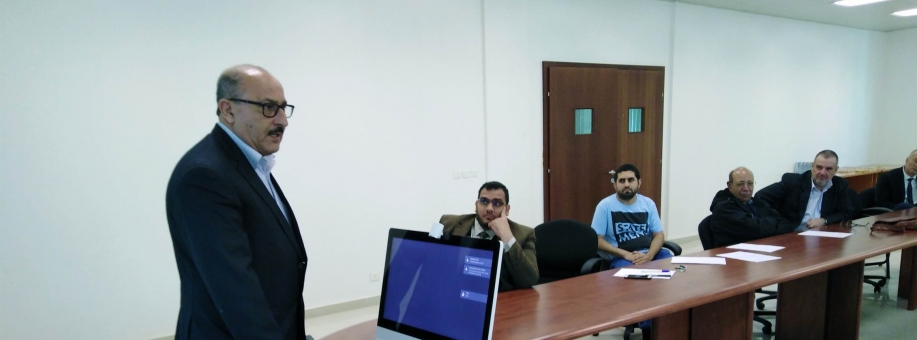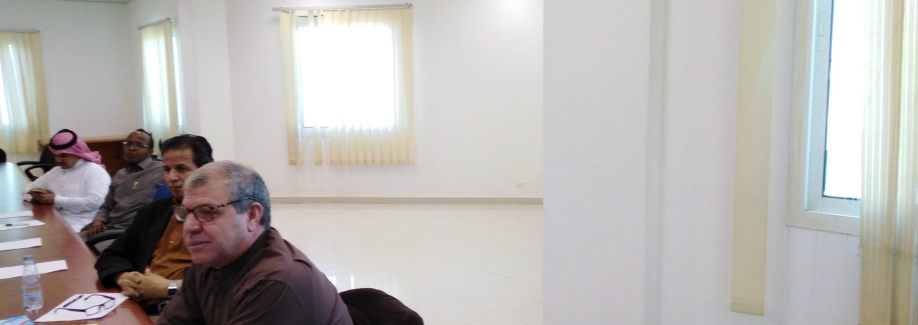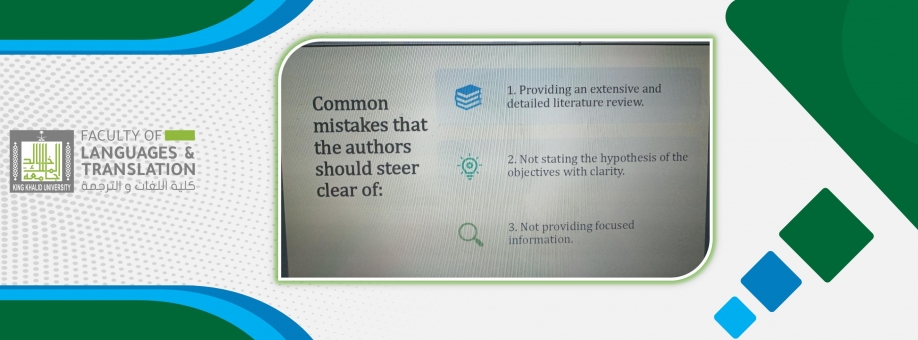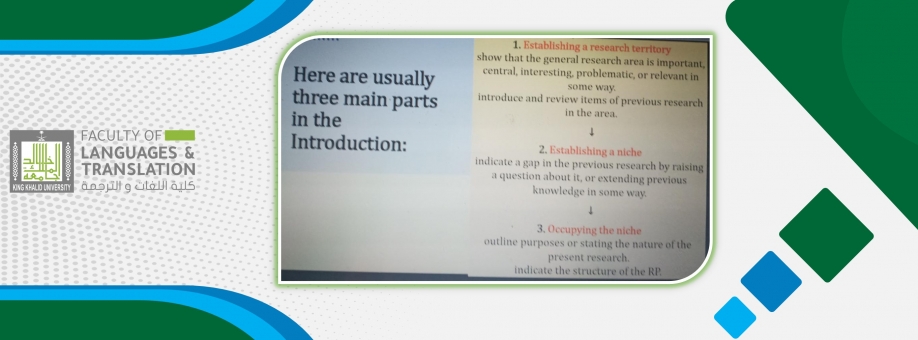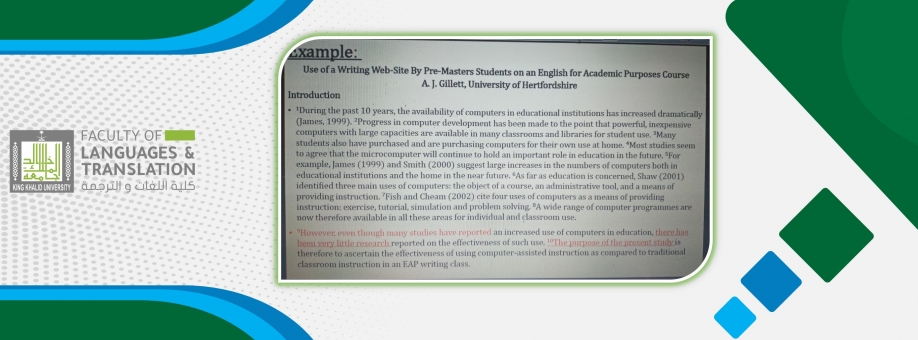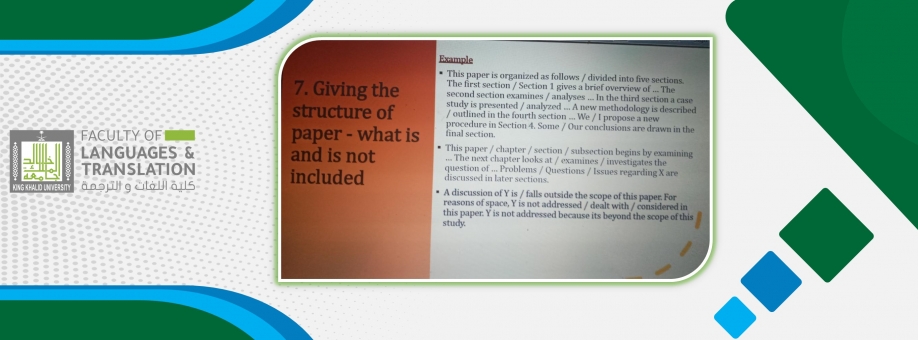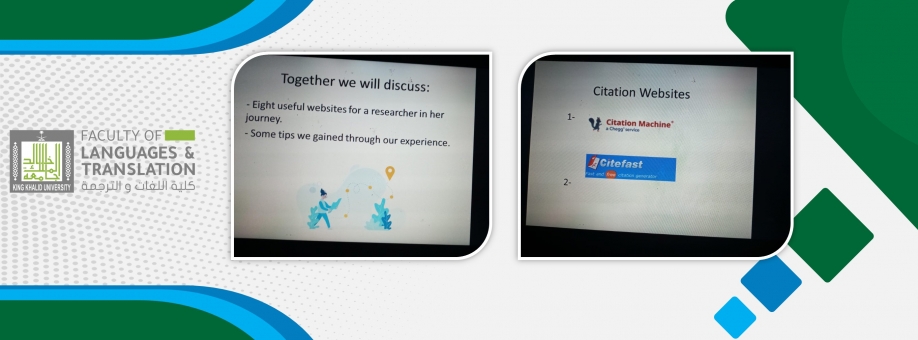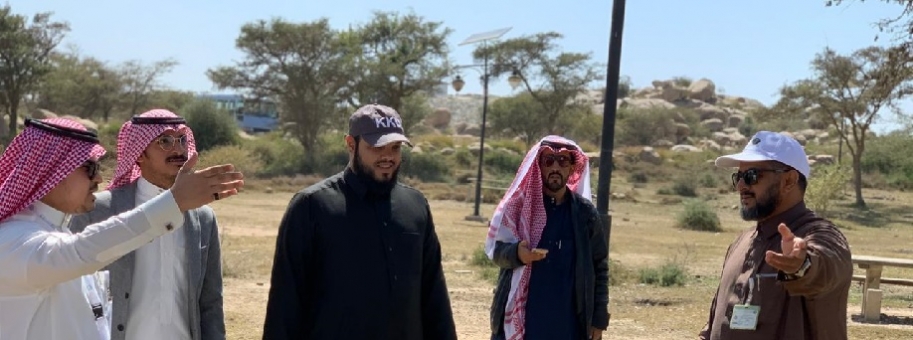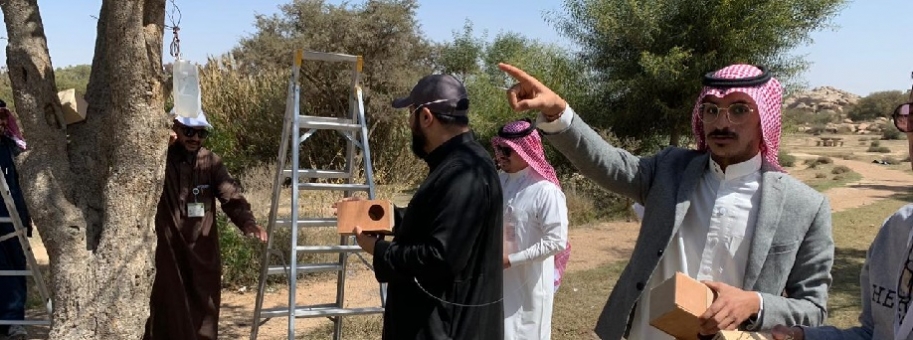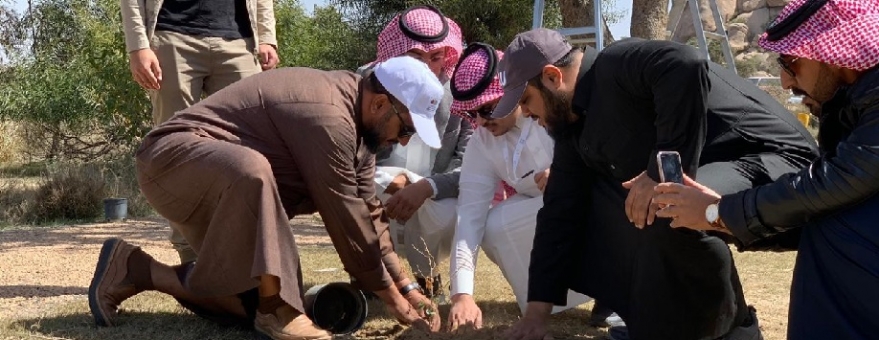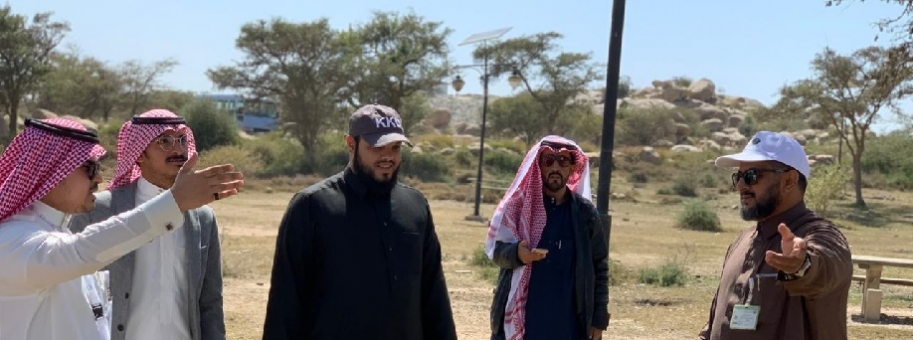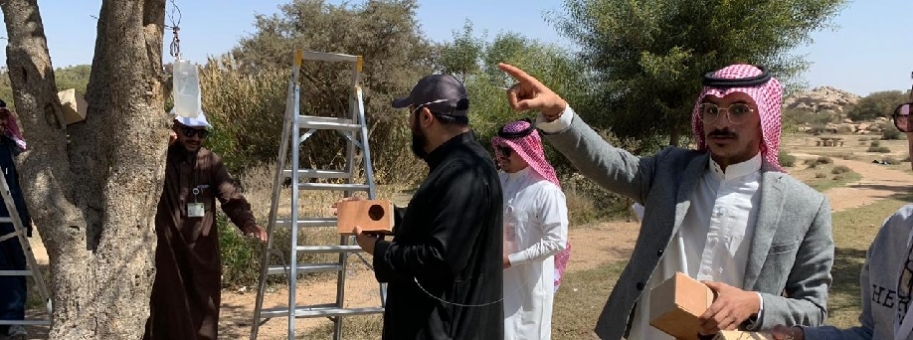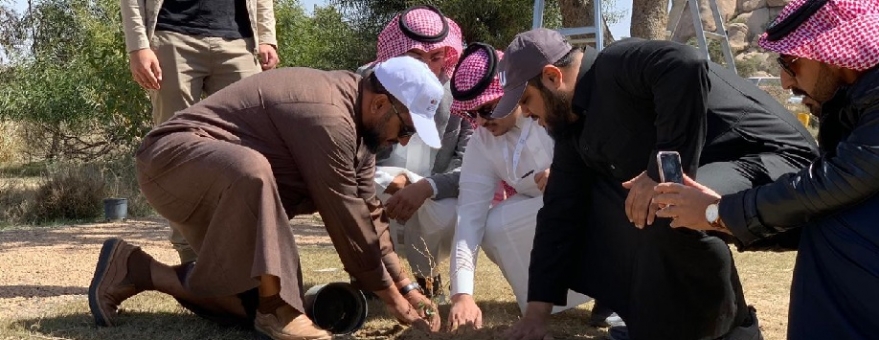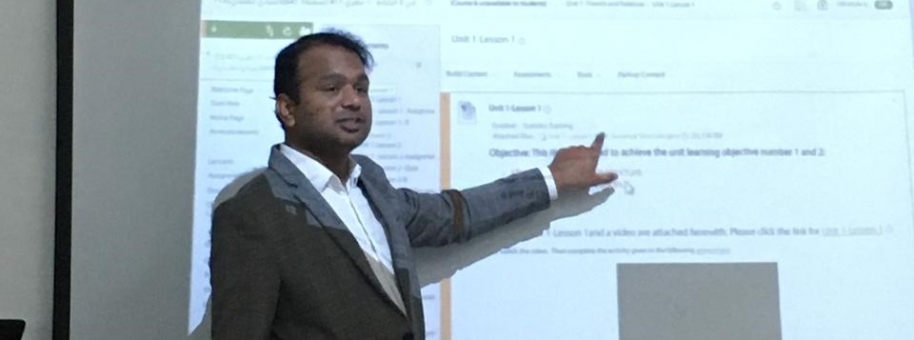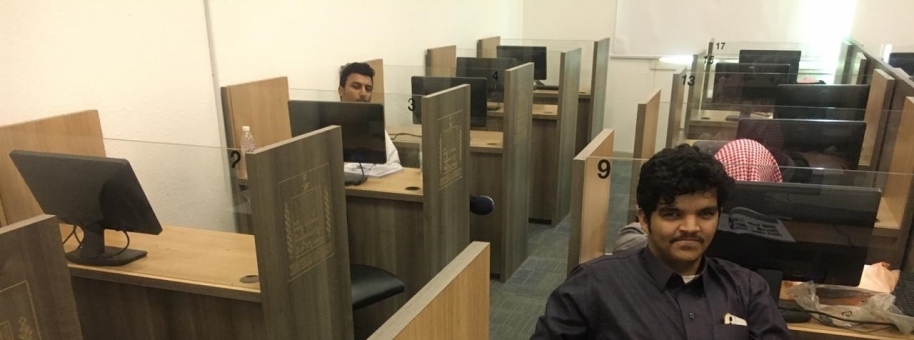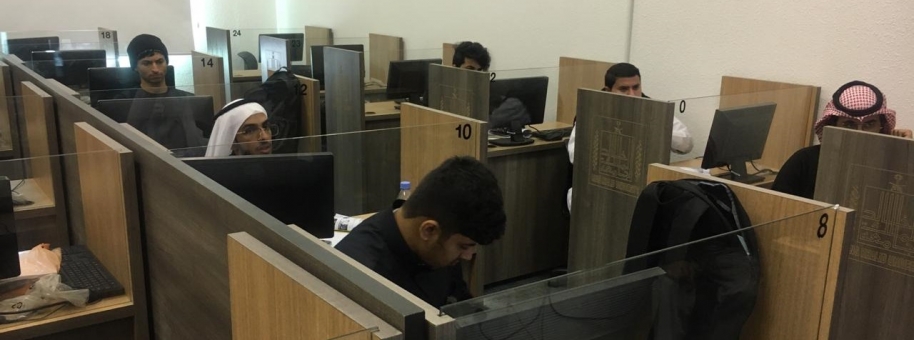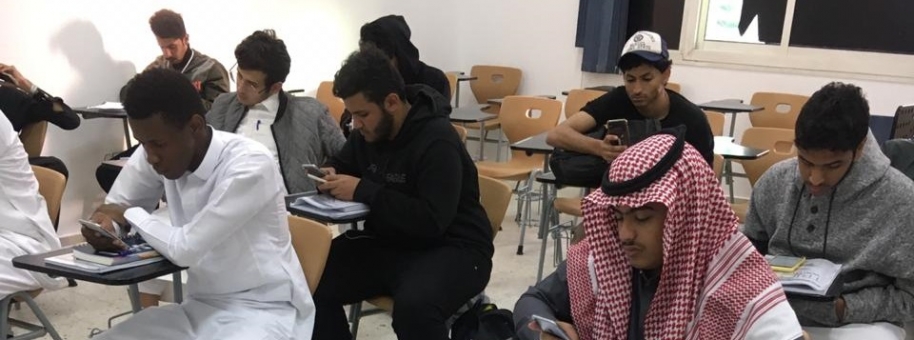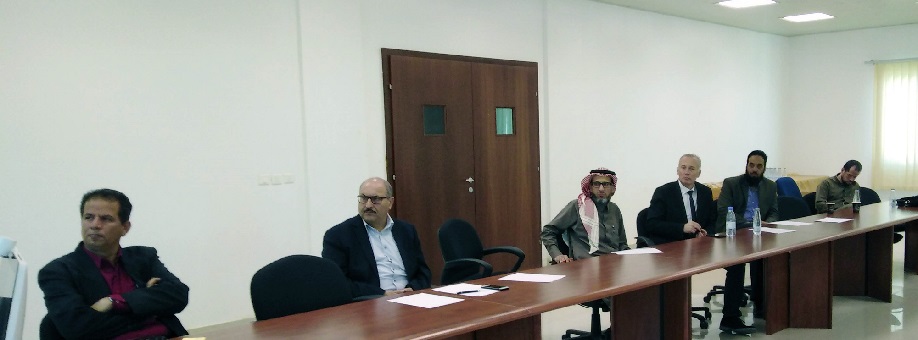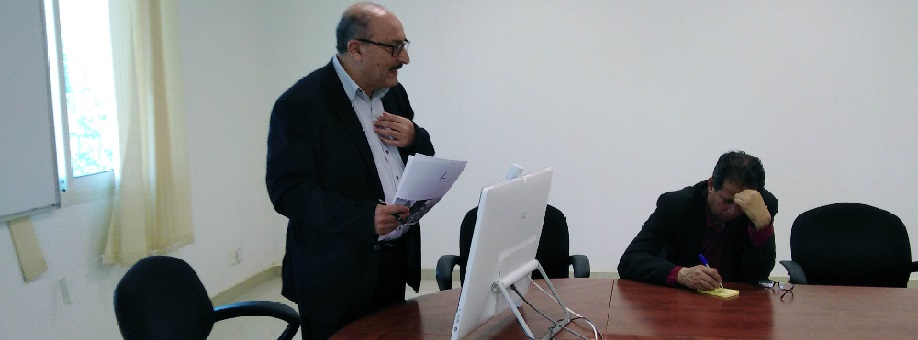Simultaneous Interpreting
On February 19, 2020, there was a presentation titled 'Simultaneous Interpreting' by two Master of Arts in Translation program students named Wafa Al-Qahtani and Raneem Riadh at a seminar organized by the Language Research Center.
Wafa and Raneem first defined 'Interpreting', followed by a detailed explanation of three modes of interpretation. "Interpreting is the transfer of one spoken or signed language into another", said the presenters. They went on further to say that it was IMMEDIACY rather than ORALITY that set 'interpreting' apart from 'translation' because orality usually EXCLUDES 'signed language'.
Simultaneous Interpretation (SI), they said, is the one in which the interpreter listens and renders the entire message in the target language at the same time the speaker is talking. They also talked about some more interesting sub-types of interpretation, such as chuchotage, bidule, bimodal interpreting, and so on. They shed light on the fact that the goal for simultaneous interpreting is NOT to paraphrase but to convey the exact message uttered in the source language.
Wafa and Raneem then talked about how SI originated, and how it is the mode officially adopted at large global organizations like the UN, EU, etc. They stated the working environment for simultaneous interpreters. In a sound-proof booth with direct view onto the conference room, the interpreter listens to a speaker through earphones and simultaneously transmits the message in another language through a microphone to the listeners' room, they added.
Wafa and Raneem, while explaining its salient features, talked about how it saves time and ensures continuity with less distraction and more concentration. They brought to light the skills a simultaneous interpreter must possess, i.e., amazing language skills, specialized knowledge, and cultural competence.
Décalage, EVS (lag time) and Word Order, the main focus of attention of the seminar, were dealt with separately, saying defining the former as the period of time between the source text input and the interpreter's target text. One important issue is that the interpreter has to make a decision on the size of units or chunks he deems suitable to form a meaningful unit to start with, when to start, when to chunk, when to wait or stall and when to start again. In relation to word order as a critical issue in simultaneous interpreting, they said, "Awkward word order is ubiquitous. The Europeans' focus of interest has been on the difficulty of putting German, Russian, Chinese or Japanese into English or French. In these source languages, a verb or predicate which are traditionally seen as the heart of the sentence's meaning and usually come early in English, may be delayed until the end". They brought this issue to Arabic. Arabic deploying VSO order is considered very hard to be interpreted alongside English. Translating an English noun phrase with one noun preceded by 5 or more adjectives into Arabic must start with the noun first and then it lists the adjectives. This poses a challenge and the interpreter's memory is the yardstick on which SI success depends. The example is elucidated by a native, shady, ornamental, high, massive, mature, mighty tree.
The seminar was informative, interactive, and an overall success. The faculty members and the MA students at the Graigor campus also participated in the seminar. Concluding the seminar, Language Research Center Director, Dr. Ismail Alrefaai, thanked the participants and encouraged all other MA students to participate and follow suit. Dr. Eyhab Bader Eddin, swelling with great pride, thanked them for their resourceful content, and for their stamina and courage to have taken to the stage.
Date: 2/20/2020
Source: Mohammad Adil Siddique

